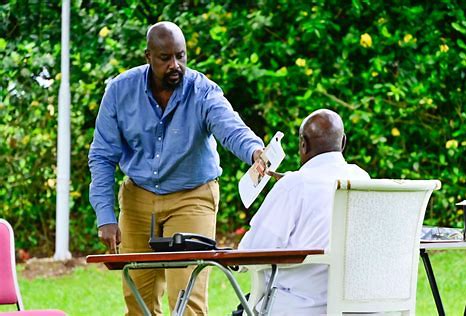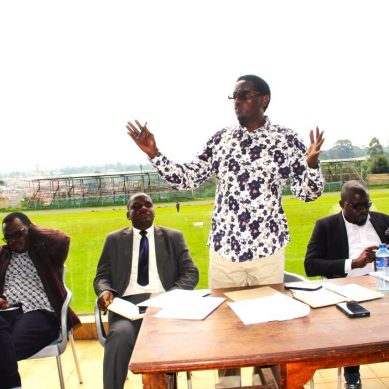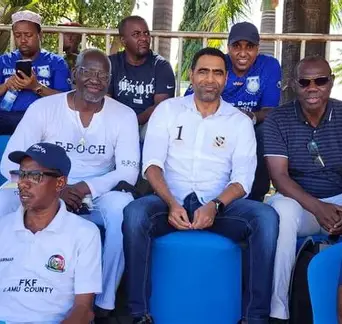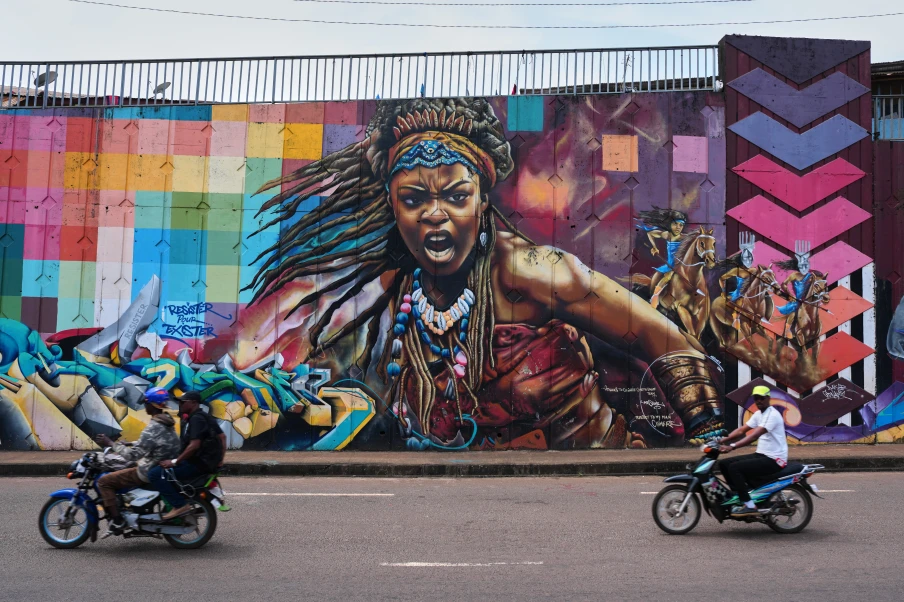
In Uganda, there are political and military manoeuvres by President Tibuhaburwa Museveni to convert the presidency of Uganda into a hereditary one. His supporters have already nicknamed his son, General Muhoozi Kainerugaba, Standby Generator.
The moniker implies that if and when President Tibuhaburwa Museveni decides to leave the seat his has held for his almost 40 years presidency or enters the twilight years of the life-death cycle – a must for all us – his son automatically assumes office. General Muhoozi Kainerubaga is on standby to continue meting out the terror that is now synonymous with this father and stepmother.
In medical lingo, the presidency has hallmarks of a megdel syndrome, defined as an inherited disorder that affects multiple body systems, especially the mental faculty and deafness that drive decision-making and judgement. Metaphorically and literally, the ruling clique in Uganda suffers politically from this syndrome and it is poised to persist. The syndrome is hereditary.
The military manoeuvres involve the president fast-tracking ascension of General Muhoozi Kainerugaba through the military ranks until he finally named him the chief of defence forces. It is notable that the president’s son ever graduated from the many military he attended in England and America apart from by instructors’ mocking him as a gym enthusiast.
Gen Kainerubaga is just a rank below Museveni’s own commander-in -chief of the Uganda armed forces. The only difference is that Tibuhaburwa Museveni holds the post of president but Gen Kainerugaba does not. However, Uganda’s politico-military history shows that men who have held high ranking positions such as the one Muhoozi Kainerugaba holds have ended up overthrowing civilian governments in the country. Gen Kainerugaba himself has already declared that civilians will never rule Uganda again.
That rhymes with a declaration made by the president many times that he will never hand over power to the civilians, whom he has never stopped referring to as “criminals” although unlike him, none of this “criminal” has ever presided over the killing of people like he has done in Luwero, Teso, Northern Uganda and the Democratic Republic of Congo (DRC).
It also rhymes well with a declaration made in the National Resistance Council (NRC) by NRM enthusiast, Basoga Nsadhu, during the making of the Uganda Constitution 1995, that the National Resistance Movement (NRM) will rule Uganda for 1000 years.
Politically, President Tibuhaburwa Museveni has successfully sustained the elephant-sized lies that
- he and NRM/A liberated Uganda from rogue politicians and criminals
- that he and his rebel group restored total peace and security in Uganda;
- that he and his rebels fought in the Luwero Triangle in the 1980s to restore democracy, freedom and justice; and that the elections his regime holds every five years are a pathway to not only these but also development, transformation and progress of Uganda. He has built a powerful propaganda machine around these lies.
Also politically, President Museveni has been preparing the collective Ugandan mind to believe that hereditary politics is a sensible strategy in politics; that it preserves continuity. This way many politicians, mainly in his NRM organisation have perpetuated their own family rule in their political constituencies. When they die their children succeed them.
Therefore, the President does not see anything wrong with hereditary politics where by children succeed their parents in public offices. The media are fearful that the president wants his family rule of Uganda with his son succeeding him in the public office of president. There have been many media reports that the President no longer belies in Universal suffrage as a means to produce a president of Uganda; that he wants the president after him to be elected by parliament; and that he wants to protect his son, who he is determined to succeed him, from the embarrassment of the electorate rejecting him.
In this article, I want to outline, not necessarily discuss, the dangers of hereditary political leadership. I have in the past written an article on hereditary politics in Uganda titled ‘Hereditary politics: Tyrants, be it in Uganda or Chad, are self-perpetuating bloodhounds’. You may want to read it again.
Here I want to focus the mind of the reader on the dangers of institutionalising hereditary political leadership in Uganda from top to bottom. There is every indication that because of the deep sea of political underdevelopment and political illiteracy, and the widespread lack of critical thinking and reasoning among the population, most people who support President Tibuhaburwa Museveni madly do not see any dangers presented to current and future generations of Ugandans and to the country.
We have seen what hereditary political rule has wrought to countries such as North Korea, Iraq, Saudi Arabia, Libya and Syria, to name but a few. Uganda is lucky because hereditary rule is only in the process of being institutionalised.
Way back in 2022, I wrote an article titled ‘Uganda: From Hereditary Chiefs and Hereditary Kings,’ which was published by Ultimate News on April 19 2022. In the article, I wrote that hereditary politicians, political families, political dynasties and dynastic politicians are a creation of the perennial rule of President Tibuhaburwa Museveni. Political families are prevalent in Japan and influence everything. I averred that one big problem with the evolution of political families and political dynasties is that those in power begin thinking that they are indispensable and that being in power is a right that is only theirs.
I went on went on to say that the tendency towards political dynasty in the reason why the public-state gives way to a deep-state whereby a few unelected individuals capture the state and its institutions and begin to use the institutions, public funds, human resources, jobs and even army and police to feed their greed and selfishness at the expense of meaningful and effective societal development, transformation and progress.
I concluded by writing that hereditary political leadership does not further political development of Ugandans since it is a commitment to the power and influence of a few families. If we are to ensure democratic growth and democracy, we must discourage hereditary politicians and hereditary politics in Uganda.
We can acquaint ourselves with the looming dangers of hereditary political leadership, which will certainly further derail Uganda from the path of democracy, freedom and justice if President Tibuhaburwa Museveni continues to prefer it to open political competition. Open political competition allows the citizens to choose the people they prefer to lead them rather than others being enforced through hereditary politics. The dangers of hereditary political leadership are many and diverse.
Dangers of hereditary politics
We can restate the dangers of hereditary political leadership thus:
Hereditary political leadership can pose significant dangers to a country’s democracy and governance.
One of the primary concerns is that it can lead to a lack of meritocracy, where leadership positions are handed down based on family, partisan ties or as gifts for being loyal or expressing zeal for a leader’s or ruler’s choices in leadership, governance and development rather than qualifications or merit. This can result in incompetent leaders who are not equipped to make informed decisions or supervise government projects and programmes.
Therefore, project or programme failures are the rule rather than the exception. Public funds go down the drain, leaders will blame others rather than themselves for the failures. They may even sack them instead of sacking themselves.
Another danger is the concentration of power, where a single family or group maintains control over a country’s political institutions, leading to a lack of diversity in perspectives and ideas. This can stifle innovation, creativity, and progress. Indeed, this today is the rule rather than the exception in Uganda.
Hereditary political leadership can also lead to nepotism and corruption as those in power may use their positions to favour family members, friends and allies rather than making decisions based on the greater good. This can erode trust in institutions and undermine the rule of law. We have seen this take centre-stage in Uganda even recently when the president of Uganda did not hesitate to write that the military courts will continues to try civilians in military courts. This of course directly undermines the judiciary, who role is to uphold and ensure justice for all.
Furthermore, hereditary political leadership can limit socio-economic mobility and perpetuate inequality, as those born into powerful families have a significant advantage over others who may be more qualified or talented. There cannot be justice for all when this is the rule rather than the exception. Indeed in Uganda we are building a country of serfs and masters.
Finally, hereditary political leadership can lead to authoritarianism, as those in power may use their positions to suppress dissent and maintain their grip on power. This can result in a lack of accountability, transparency, and human rights.
Indeed, in Uganda, there is general belief that this is already the case, and that the military courts have been turned into tools of oppression, suppression and repression of alternative political leaders.
There is no doubt that if we want to build a country for al, where democracy, freedom and justice matter, we must rethink the way we do politics and justice and decongest it of militarism and the thinking that only certain families must access power, its resources and rule Uganda. This is an expression of greed and selfishness and a bad lesson to the young generations of Ugandans today and tomorrow.
For God and my country







